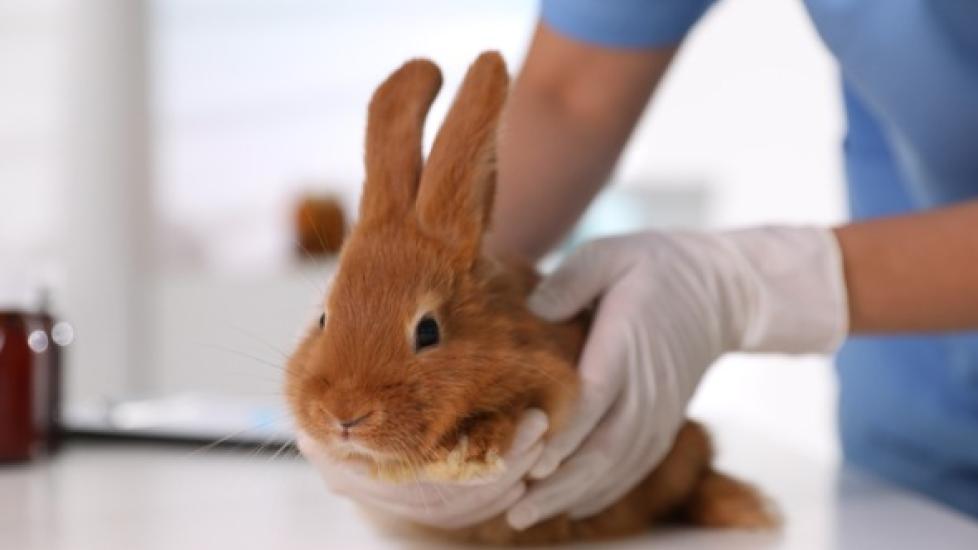Uterine Infections in Rabbits
Pyometra
The medical term for an infection in the rabbit's uterus is pyometra. This and other reproductive (or non-neoplastic endometrial) disorders, including the growth and bloating of the uterus, are common among small animals like rabbits and ferrets.
Symptoms
Typically, a rabbit with pyometra will have blood in its urine originating from the uterus. It may come intermittently or follow the animal’s reproductive cycles. Some other symptoms include:
- Paleness
- Increasingly aggressive behavior
- Signs of a systemic illness (e.g., shock or blood infection)
- Fluid buildup in the uterus
- Signs of a pseudo-pregnancy
- Stillborn pregnancies or infertility
Cause
The endometrium functions as the lining of the uterus. Fluid can build up along its walls, often for various reasons including age, uterine cancer, tissue overgrowth (associated with the buildup of cysts), or bacterial overgrowth, as in the cases of Chlamydia and Listeria monocytogenes.
Diagnosis
To diagnose the rabbit, your veterinarian will first rule out obvious causes for abdominal distension including pregnancy or carcinoma of the uterus. The veterinarian will also note such clinical abnormalities as elevated levels of certain blood markers or decreased blood counts. For example, some rabbits may have anemia or low iron.
Treatment
Often, treatment begins with supportive care. This may include providing antibiotics for the rabbit or, in the case of massive hemorrhaging, providing blood transfusions for the animal. Some animals require dietary changes such as the addition of fresh greens (i.e., collard greens, spinach and dandelion greens). Many rabbits will eat these types of greens, even if they refused food prior to the diagnosis. High-fat and high-carbohydrate foods are not recommended, as these can contribute to poor health and even worsen the rabbit's symptoms.
Some rabbits require surgical treatment. For example, removing the animal's ovaries through a hysterectomy has shown some success in treating pyometra or other uterine disorders. Occasionally, ovarian abscesses or bacterial growths will be found in the rabbit's uterus. Those should also be removed surgically. Aside from antibiotics, your veterinarian may prescribe nonsteroidal anti-inflammatory drugs (NSAIDs) to help with the rabbit's pain and inflammation.
Living and Management
Pyometra is treatable if addressed early on, however, if it is not, complications can arise including blood infections and gum or dental disease. Also, if the rabbit has undergone surgery to treat the pyometra, it may contract a postoperative infection or have bouts of hemorrhaging. Therefore, if any of these complications should arise, bring the rabbit back to your veterinarian for a follow-up exam.
Featured Image: iStock.com/Liudmila Chernetska
